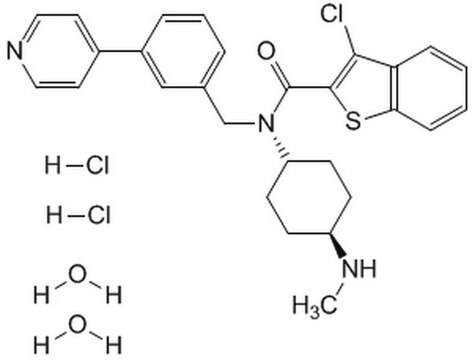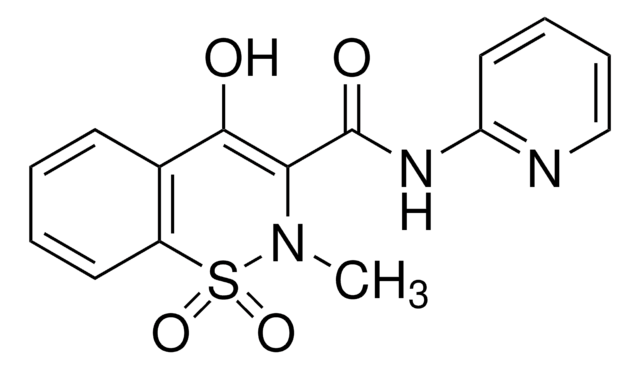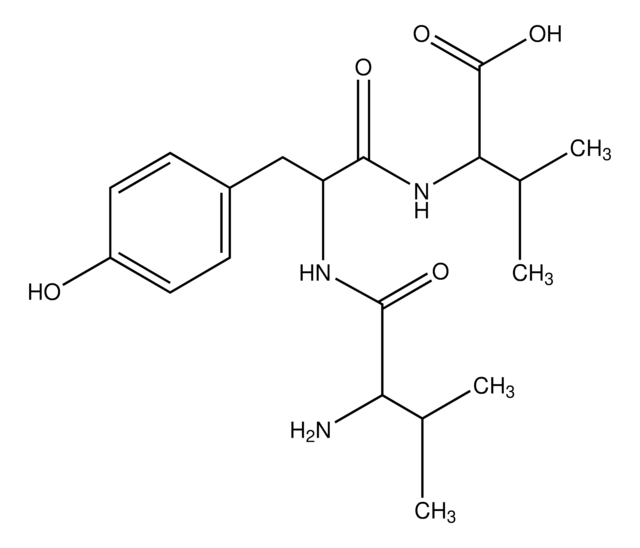SCP0145
Fibrinopeptide B human
Iniciar sesiónpara Ver la Fijación de precios por contrato y de la organización
About This Item
Fórmula empírica (notación de Hill):
C66H93N19O25
Peso molecular:
1552.56
UNSPSC Code:
12352202
NACRES:
NA.32
Productos recomendados
biological source
human
assay
≥95% (HPLC)
form
lyophilized
composition
Peptide Content, ≥75%
storage condition
protect from light
storage temp.
−20°C
Amino Acid Sequence
Glp-Gly-Val-Asn-Asp-Asn-Glu-Glu-Gly-Phe-Phe-Ser-Ala-Arg
Application
Pyroglutamated Fibrinopeptide B (Glp-Gly-Val-Asn-Asp-Asn-Glu-Glu-Gly-Phe-Phe-Ser-Ala-Arg) is related to Fibrinopeptide B (Gln-Gly-Val-Asn-Asp-Asn-Glu-Glu-Gly-Phe-Phe-Ser-Ala-Arg) derived from fibrinogen (desAA-fibrin) by thrombin activity.
Storage Class
11 - Combustible Solids
wgk_germany
WGK 3
flash_point_f
Not applicable
flash_point_c
Not applicable
Elija entre una de las versiones más recientes:
Certificados de análisis (COA)
Lot/Batch Number
¿No ve la versión correcta?
Si necesita una versión concreta, puede buscar un certificado específico por el número de lote.
¿Ya tiene este producto?
Encuentre la documentación para los productos que ha comprado recientemente en la Biblioteca de documentos.
W Ruf et al.
Biochimica et biophysica acta, 965(2-3), 169-175 (1988-05-12)
Thrombin preferentially cleaves fibrinopeptides A (FPA) from fibrinogen resulting in the formation of desAA-fibrin from which most of the fibrinopeptides B (FPB) are then released with an enhanced rate. Kinetics of fibrinopeptide release from normal and dysfunctional fibrinogens were investigated
Yutaka Masuda et al.
Peptides, 23(3), 409-411 (2002-02-12)
We detected a peptide having a behavioral activity on mouse forced swimming from sera of healthy volunteers without affective and psychotic diseases. The amino acid sequence was GVNDNEEGF, which was found in the sequence of human beta-fibrinogen. The synthesized peptide
Tomas Riedel et al.
Blood, 117(5), 1700-1706 (2010-11-26)
Fibrinogen adsorption on a surface results in the modification of its functional characteristics. Our previous studies revealed that fibrinogen adsorbs onto surfaces essentially in 2 different orientations depending on its concentration in the solution: "side-on" at low concentrations and "end-on"
Nuestro equipo de científicos tiene experiencia en todas las áreas de investigación: Ciencias de la vida, Ciencia de los materiales, Síntesis química, Cromatografía, Analítica y muchas otras.
Póngase en contacto con el Servicio técnico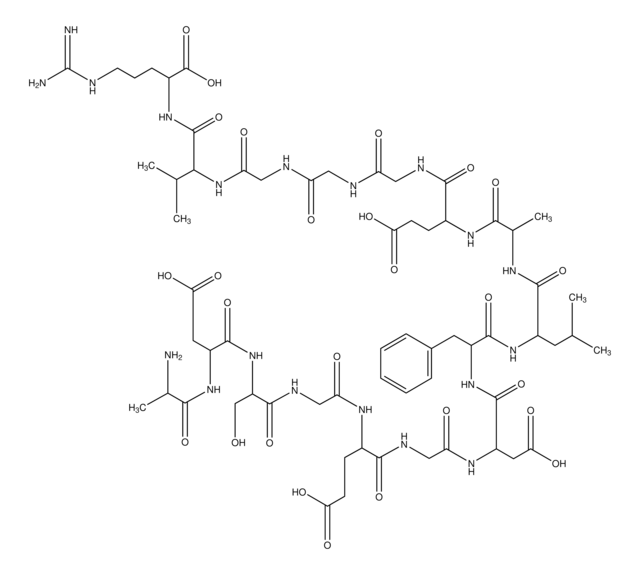
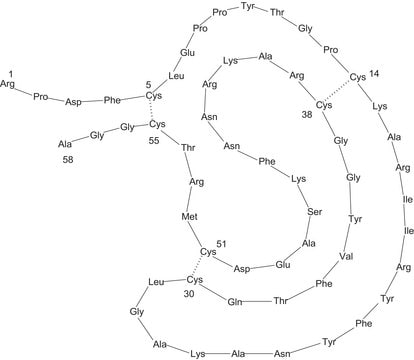
![[Glu1]-Fibrinopeptide B human ≥90% (HPLC)](/deepweb/assets/sigmaaldrich/product/structures/122/537/7ead5c32-cb67-4325-9ce7-66c8dec24bdd/640/7ead5c32-cb67-4325-9ce7-66c8dec24bdd.png)
![[Tyr0]-Fibrinopeptide A human](/deepweb/assets/sigmaaldrich/product/images/150/102/03b083b5-a149-4f15-be65-e8832cce7318/640/03b083b5-a149-4f15-be65-e8832cce7318.jpg)

